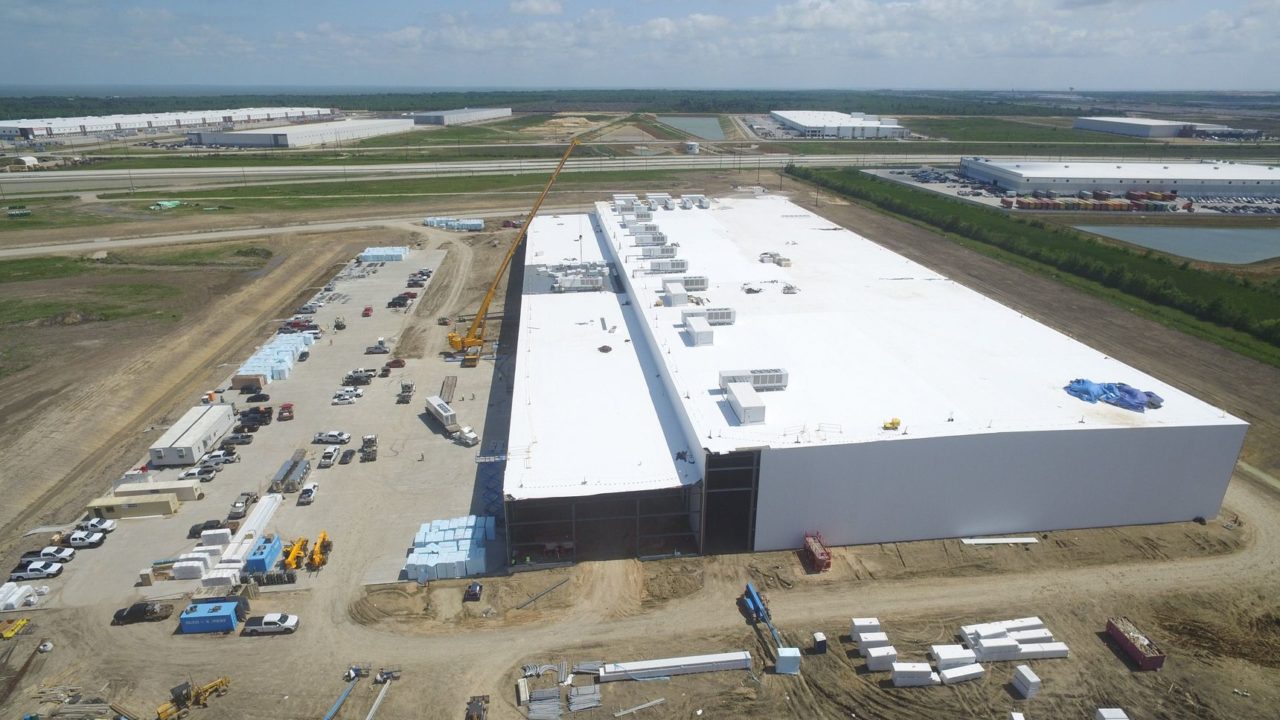Industrial Real-Estate Developers Are Hot on Cold-Storage Warehouses
The amount of refrigerated storage space under construction without a tenant lined up is booming, even as consumer shopping habits shift again.
Industrial real-estate developers have been stepping up building cold-storage warehouses in the U.S. without tenants lined up for the space, betting that pandemic-driven changes in the way consumers buy groceries and meals are here to stay.
Nearly 3.3 million square feet of refrigerated warehouse space was under construction through the second quarter of this year nationwide without companies slated ahead of time to take up the sites, some 1,000% more than was built in 2019, according to a report by real-estate services firm CBRE released on Wednesday.
The growth in what is known in real estate as speculative construction follows an upheaval in consumer buying patterns during the Covid-19 pandemic, as Americans rushed to buy groceries online and stocked up on more frozen foods while supermarket chains and food suppliers recast their supply chains to meet the demand.
Consumer spending has been shifting again more recently as shoppers return to stores, cutting into e-commerce sales, and as rising inflation takes a toll on broader retail demand.
We’re watching retail sales closely,” said Matthew Walaszek, director of research at CBRE and one of the report’s authors. “If that takes a tumble, that will impact the market and there will be a pullback in an expansion, but we’re not seeing that just yet.”
The cold-storage market is largely insulated from an economic slowdown because people have to keep eating, whether they are buying food at a grocery store or sitting down at a restaurant, Mr. Walaszek said.
Grocery sellers including Walmart Inc. and Kroger Co. rolled out an array of new logistics operations to meet the online demand during the pandemic, and many are continuing to invest in areas such as home delivery and curbside pickup. Kroger is working with U.K. automated grocery fulfillment specialist Ocado Group PLC to build a series of robotics-filled distribution centers in the U.S. to reach e-commerce customers.
There are signs demand for refrigerated products may be wavering. Spot rates for refrigerated trucks were down nearly 10% in May compared with March, according to online freight marketplace DAT Solutions LLC.
Developers, brokers and other industry experts say there is room in the market for more space, particularly in areas where the population is growing rapidly, including Texas, Arizona and Florida.
So far, about one-third of the 3.3 million square feet under development has been leased, Mr. Walaszek said, which is in line with what is typical in the broader industrial market for speculative projects.
Marc Duval, a managing director in capital markets at real-estate investment services firm JLL, said a big share of U.S. refrigerated warehousing is “inefficient and dated,” which will also drive demand for new sites that can operate more efficiently.
New developers are entering the sector, which is considered something of a niche in the industrial real-estate market because of the special demands of refrigerated warehousing. A CBRE survey in April found about 40% of real-estate investors were interested in cold-storage, up from 7% in 2019.
Thomas Eldridge, principal at Atlanta-based RL Cold, a RealtyLink company, entered the field in 2020. “There’s so much demand, and this is something that’s critical,” he said. “It’s vital for our economy.…Everyone has to eat. We have not experienced any slowdown at all. If anything, it’s picked up.”
RL Cold has three refrigerated buildings of about 300,000 square feet each under construction in Charleston, S.C., Baytown, Texas, and Wilmington, N.C. The projects were started without tenants lined up, and have all been leased since the work began.
Mr. Eldridge said RL Cold is scheduled to close on three more cold-storage sites in the next 90 days, a sign of continued confidence in the sector.
Still, the newer projects face the headwinds that are roiling much of the construction business, including rising costs for labor and for materials such as steel.
In Charleston, “what we thought was going to be a $60 million project ended up being a $100 million project,” Mr. Eldridge said.
Read full article here.

